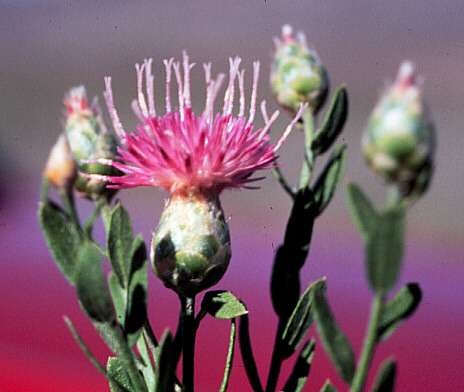By Blaine Bug Crew
Have you ever had a dream that you woke up one morning and there were not any noxious weeds? No matter how many ways we try to eradicate weeds and control them, the fact is, invasive weeds will always be a part of our lives. In every square foot of soil there are hundreds of thousands, if not millions, of dormant seeds. Some of these are viable and some are not. The seed bed in our soil exists despite concrete, pavement, or even lawns. Mother Nature hates to be naked, and if given the chance, she will cover herself with whatever seeds can germinate the quickest.
Now that we’ve established that there is a never-ending supply of seeds in our soil, the next logical question becomes, what are we going to do about it? The easiest solution is sprays. However, longitudinal research has determined that sprays are not sustainable and many are harmful to humans, pets, and wildlife. Sprays, by and large, are not target-weed specific, so they destroy the entire flora and fauna even though the land manager is only targeting one or two weeds.
Mechanical pulling is an option, but it requires a tremendous amount of effort and man hours. This is a sustainable option only if we can sustain the energy level and resolve of those pulling weeds in the hot summer sun, hour by hour, day by day. This is manageable on a smaller scale, like in a small garden or yard. Unfortunately, Idaho is filled with vast tracts of land, brimming with noxious weeds.
Mowing is an option, but it requires vigilance. Land managers need to strategically mow when target weeds are about to bloom. This can be extremely effective for large swaths of land. This accomplishes two things: First, it allows Mother Nature to keep her clothes on and, secondly, it stops a new generation of seeds from maturing and re-infesting the soil. Cultivating and discing are not very good options because they disturb the seed bed and encourage new growth and destroy established good plants that are helping to control erosion.
Another lesser-known option is biological control. This is the process of introducing target-weed-specific insects to invasive species who naturally feed on these weeds.These insects will not eradicate the weed, but will manage it. These insects overwinter in the roots of their host plants and continue to come back year after year, generation after generation.
If you would like to know more about any one of these methods of weed control, please contact Morgan Baird, Blaine County Weed Department specialist, at (208) 788-5543, ext. 1136.



